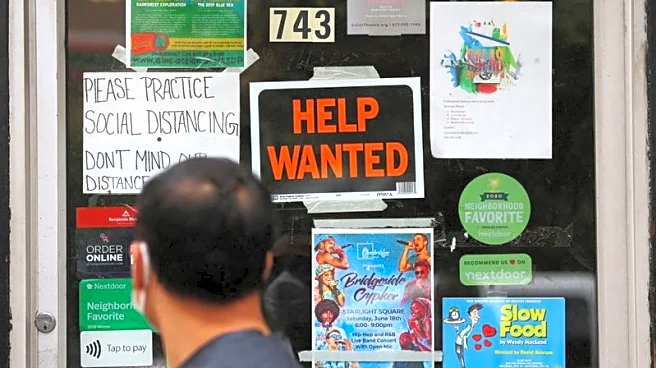What's Happening?
The potential sale of Warner Bros. to another major Hollywood studio has raised alarms within the theater industry. The acquisition, whether by Paramount, Netflix, or Comcast, is seen as a 'red alert'
moment for theaters, which are already struggling with fewer movie releases. Theaters fear that further consolidation could lead to a reduction in film output, similar to the impact seen after Disney's acquisition of 20th Century Fox. The industry is considering antitrust legal action or protests to prevent the merger, which could significantly affect the number of films available for theatrical release.
Why It's Important?
The consolidation of major studios poses a significant threat to the theater industry, which relies on a steady stream of new films to attract audiences. A reduction in film output could exacerbate the challenges faced by theaters, including competition from streaming services and the lingering effects of the pandemic. The potential merger also raises antitrust concerns, as it could lead to decreased competition and fewer choices for consumers. The outcome of this situation could have far-reaching implications for the entertainment industry, affecting filmmakers, distributors, and audiences alike.
What's Next?
Theater owners and industry stakeholders are likely to increase their lobbying efforts to prevent the merger. Discussions are underway within trade organizations like Cinema United to formulate a response. The potential for antitrust lawsuits and international regulatory scrutiny could also play a role in shaping the outcome. The industry will be closely watching the actions of major players like Netflix and Paramount, as well as the response from government regulators.
Beyond the Headlines
The potential merger highlights broader issues of media consolidation and its impact on cultural diversity and consumer choice. The reduction in film output could limit the variety of stories and perspectives available to audiences, affecting the cultural landscape. Additionally, the merger could set a precedent for future consolidations, further concentrating power within a few major media conglomerates.












